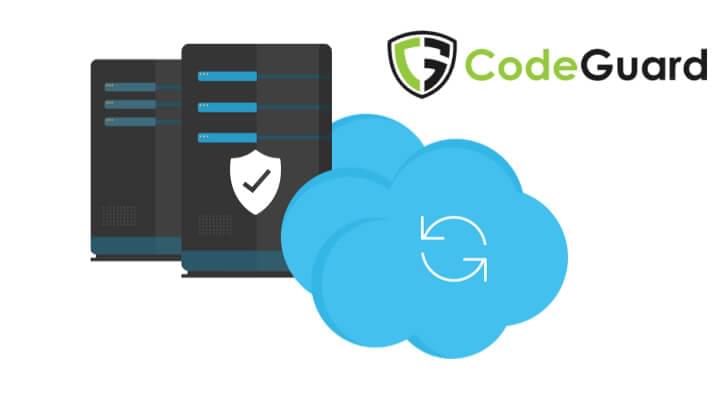
Introduction:
In the increasingly digital landscape of today, software has become the backbone of modern businesses. From managing operations to customer interactions, software applications play a critical role. However, along with the myriad benefits they offer, software applications also bring forth the risk of vulnerabilities. These vulnerabilities can expose businesses to various threats, including data breaches, financial losses, and reputational damage. To mitigate these risks, businesses are turning to innovative solutions like CodeGuard, which functions akin to insurance for software vulnerabilities. This article delves into the concept of CodeGuard and its role in safeguarding software assets.
Understanding CodeGuard:
CodeGuard can be likened to an insurance policy for software vulnerabilities. It operates by continuously monitoring and backing up a website’s codebase. In the event of a security breach or a software issue, CodeGuard enables swift recovery by restoring the website to a previously backed-up version. This proactive approach helps businesses minimize downtime, data loss, and potential damage to their reputation.
Key Features and Benefits of CodeGuard:
- Automated Backups: CodeGuard automates the process of website backups, ensuring that even the slightest changes to the codebase are captured. This comprehensive backup system provides businesses with peace of mind, knowing that their critical data is secure and recoverable.
- Version Control: With CodeGuard, businesses can maintain a history of their website’s codebase versions. This version control feature allows them to roll back to a previous state in case of errors, malicious attacks, or unintended changes. By preserving a trail of code revisions, CodeGuard facilitates efficient troubleshooting and restoration processes.
- Monitoring and Alerts: CodeGuard continuously monitors websites for any unauthorized changes or suspicious activity. Upon detecting anomalies, it sends real-time alerts to administrators, enabling them to take immediate action. This proactive monitoring helps businesses stay ahead of potential threats and mitigate risks promptly.
- Malware Detection and Removal: Beyond backup and restoration, CodeGuard includes built-in malware detection and removal capabilities. By scanning the website for malicious code or malware-infected files, CodeGuard helps businesses maintain a secure online presence. In case of an infection, it facilitates the removal of malware, preventing further damage to the website and its visitors.
- Seamless Integration: CodeGuard seamlessly integrates with popular web hosting platforms and content management systems (CMS) like WordPress, Joomla, and Drupal. This compatibility ensures easy implementation for businesses without disrupting their existing workflows. Whether hosted on shared servers or cloud platforms, CodeGuard adapts to diverse hosting environments with ease.
Use Cases and Real-world Scenarios:
- E-commerce Protection: For e-commerce businesses, maintaining website uptime and securing customer data are paramount. CodeGuard provides a safety net by backing up product catalogs, customer databases, and transactional data. In the event of a security breach or website compromise, CodeGuard enables rapid restoration, minimizing revenue losses and preserving customer trust.
- Small Business Resilience: Small and medium-sized enterprises (SMEs) often lack dedicated IT resources to manage cybersecurity effectively. CodeGuard offers an affordable yet robust solution for SMEs to protect their online assets. By automating backups and providing security monitoring, CodeGuard empowers small businesses to focus on growth without worrying about cyber threats.
- Agency and Freelancer Support: Digital agencies and freelance developers responsible for managing multiple client websites can benefit significantly from CodeGuard. By centralizing website backups and monitoring, CodeGuard streamlines maintenance tasks and enhances client satisfaction. Its user-friendly interface and collaboration features make it a valuable tool for agencies managing diverse web portfolios.
- Regulatory Compliance: In regulated industries such as healthcare, finance, and government, compliance with data protection regulations is non-negotiable. CodeGuard helps businesses meet regulatory requirements by ensuring the integrity and availability of sensitive data. With automated backups and security measures in place, businesses can demonstrate their commitment to safeguarding customer information.
Conclusion:
In an era defined by digital transformation and cyber threats, protecting software assets is imperative for businesses of all sizes. CodeGuard emerges as a reliable ally in this endeavor, offering comprehensive insurance against software vulnerabilities. By automating backups, monitoring for threats, and facilitating swift recovery, CodeGuard enables businesses to fortify their online presence and uphold customer trust. As cyber risks continue to evolve, investing in solutions like CodeGuard becomes essential for staying resilient in the face of adversity. Embracing proactive measures today can safeguard software assets and pave the way for a secure digital future.
 Accident Lawyers Offshore Accident Lawyers – Offshore Injuries & Jones Act Lawyer
Accident Lawyers Offshore Accident Lawyers – Offshore Injuries & Jones Act Lawyer



